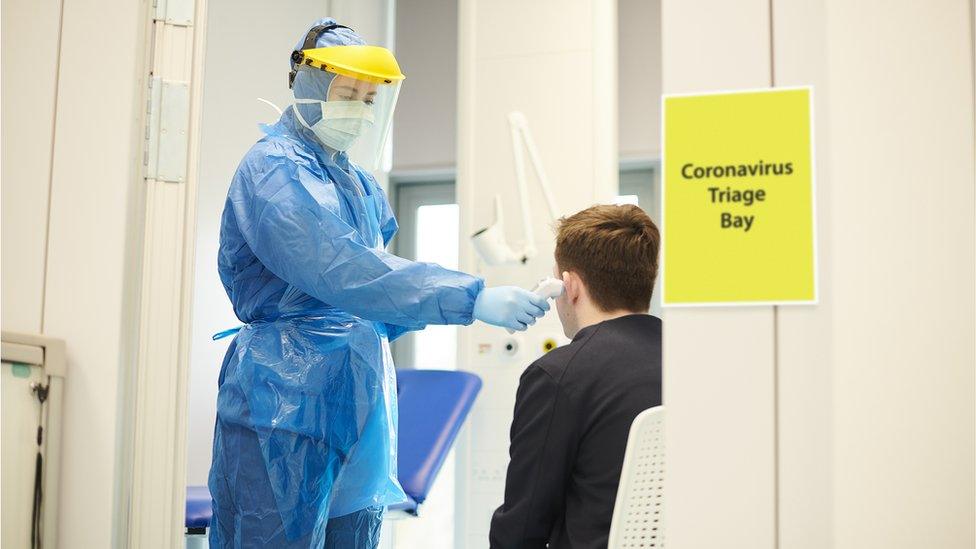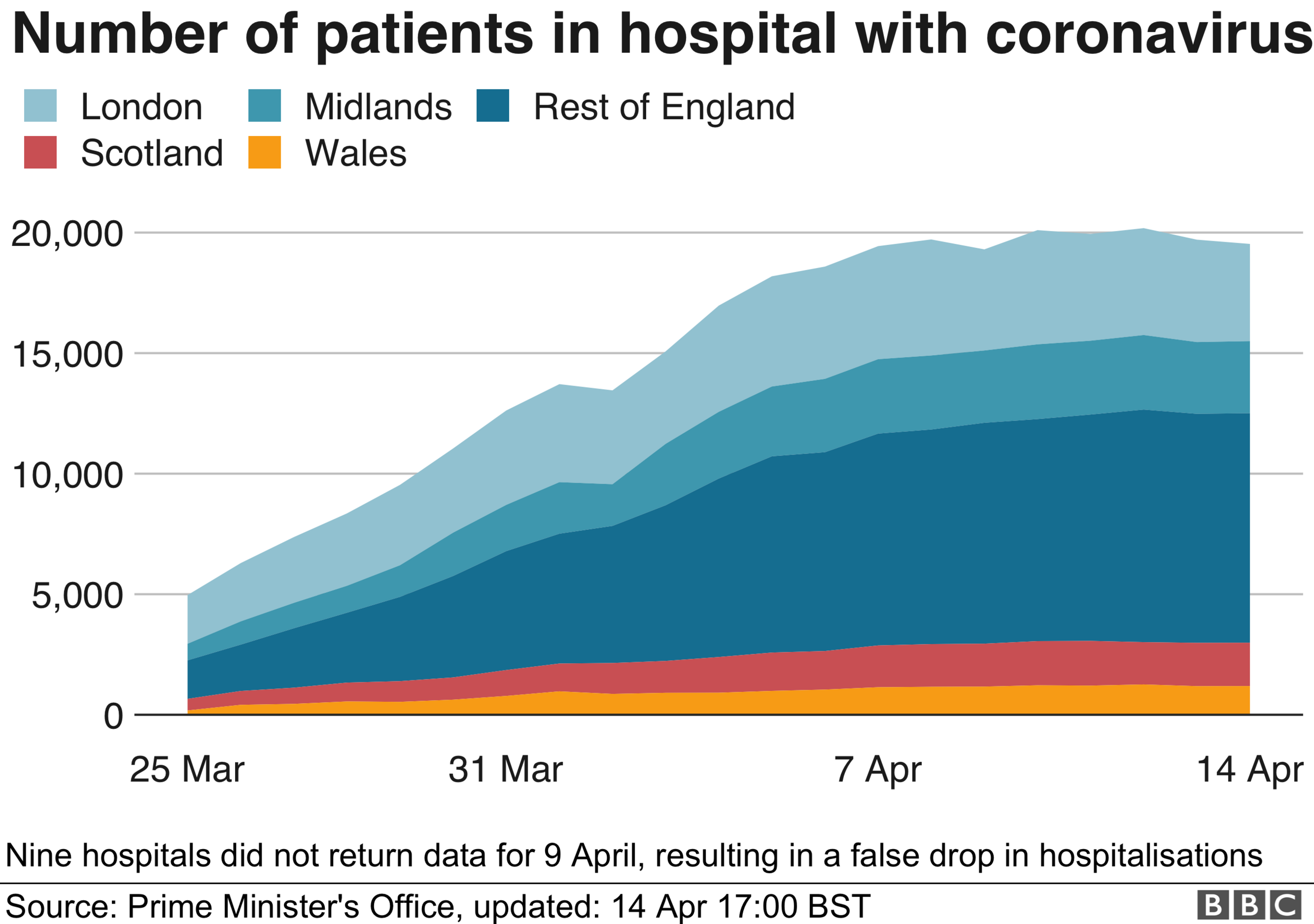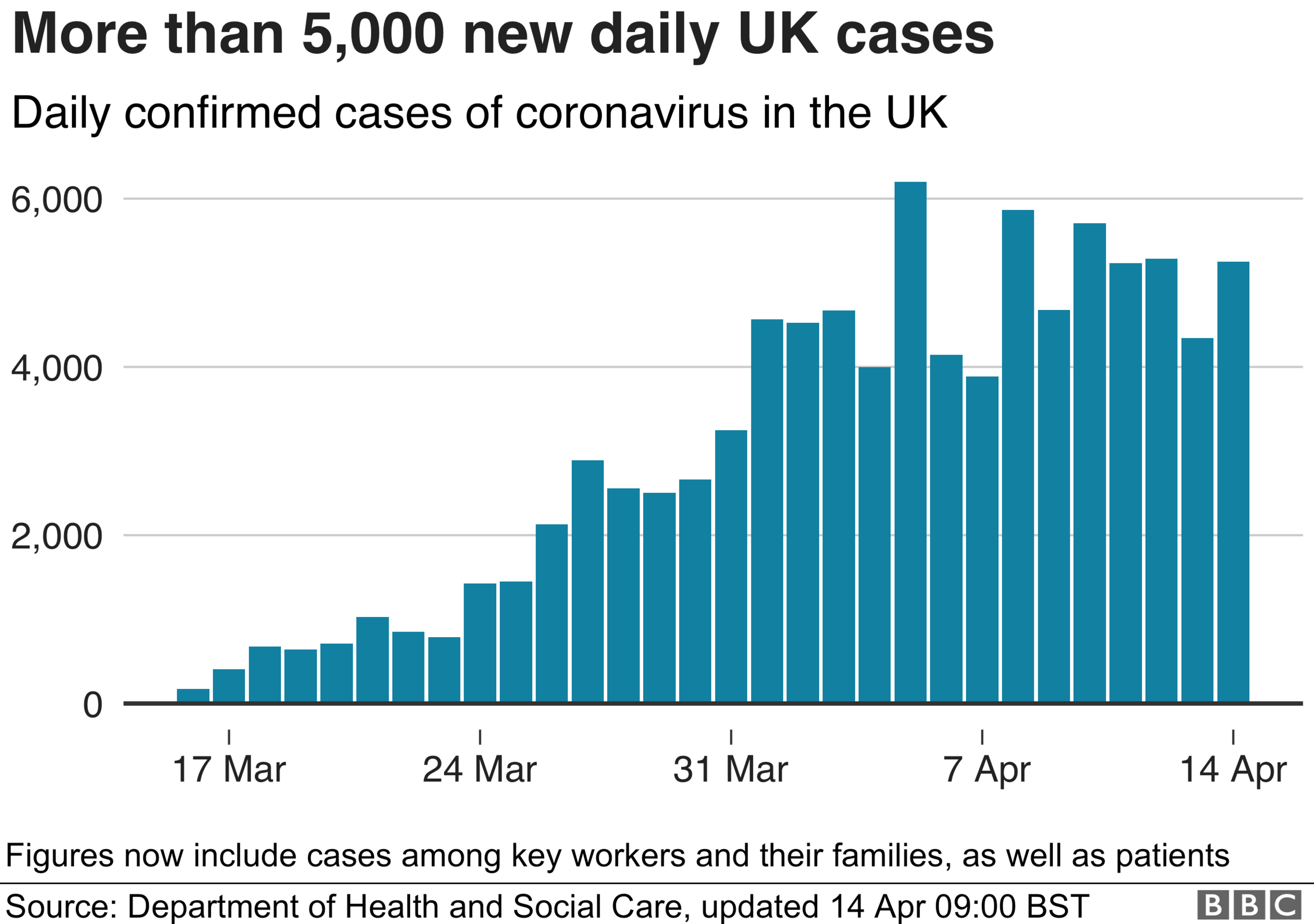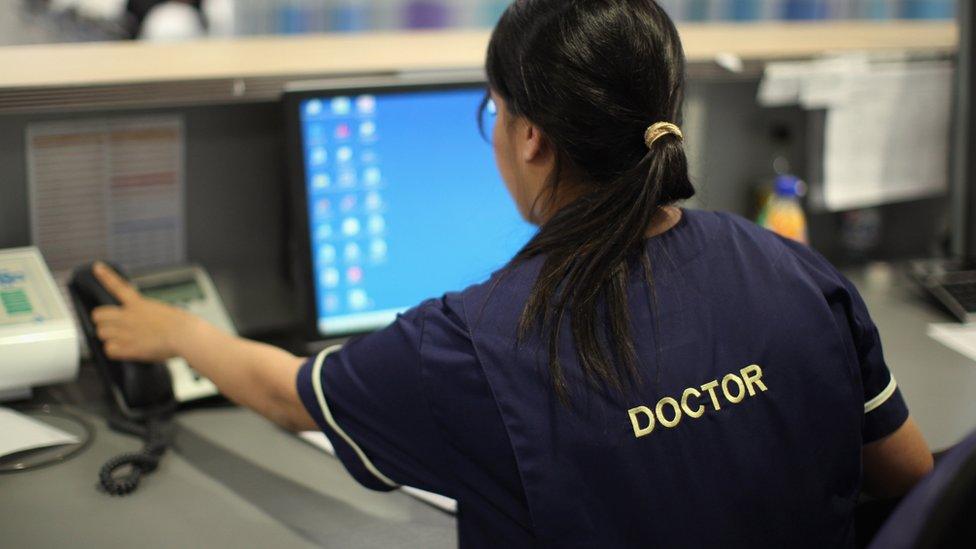Coronavirus: We can cope with peak, hospital bosses say
- Published
- comments

Hospitals should be able to cope with an expected peak in coronavirus cases, according to NHS bosses.
NHS Providers, which represents hospitals and other NHS trusts in England, said there were enough beds in hospitals for patients.
The hard work to increase intensive-care capacity and free up space on general wards had paid off.
But coping with significant numbers of coronavirus patients in the long-term remained a concern.

Chief executive Chris Hopson said it looked "increasingly likely" the NHS would successfully navigate the peak.
But he added: "We cannot relax. We must remain vigilant."

A SIMPLE GUIDE: How do I protect myself?
AVOIDING CONTACT: The rules on self-isolation and exercise
HOPE AND LOSS: Your coronavirus stories
LOOK-UP TOOL: Check cases in your area
VIDEO: The 20-second hand wash

And the British Medical Association said while there was still capacity available, many individual hospitals were struggling as the pressure was not spread evenly.
It also warned the workforce had had to be "diluted", with staff who were not fully trained being asked to step into critical areas, such as intensive care.
"We absolutely cannot afford to be complacent," the BMA added.

How busy are hospitals?
On Tuesday, NHS England medical director Prof Stephen Powis said hospital cases appeared to be "plateauing".
There are about 19,000 patients being treated for coronavirus in UK hospitals.
But more than 30,000 beds had been freed in advance by cancelling non-emergency treatment and quickly discharging patients, allowing hospitals to cope.
The number of intensive-care beds have been doubled to nearly 10,000.
And more than 2,000 of them are still available.
On top of this, the NHS has paid for space in private-sector hospitals, including 8,000 beds, while a series of field hospitals are being planned.
And there are now doubts about whether all these will be needed.
The transformation of London's ExCeL centre into the Nightingale Hospital
The biggest field hospital, NHS Nightingale in London, has already opened.
It has space for 4,000 patients but has taken only a few dozen so far.
Meanwhile, the facility in Birmingham has yet to take in any patients, while the site planned in north-east England may not now be needed.
Martin Wilson, the chief operating officer for Newcastle Hospitals NHS Foundation Trust, which is overseeing the Washington project, said: "I don't think we will need to open.
"If we do, we will be ready."
How has the NHS has done it?

The briefing produced by NHS Providers highlights how the health service learned from the experiences of China and, in particular, Italy, where hospitals became overwhelmed.
It said pressures had been managed by hospital bosses collaborating nationally, regionally and locally, a "very far cry from the distressing stories" in Italy, where hospitals appeared to be working in isolation.
Mr Hopson also praised community and mental-health services for supporting more patients out of hospital and the public for adhering to social-distancing requirements.
But he also said the lack of testing and protective equipment had been frustrating and caused problems.
And he warned if the peak was not short-lived, hospitals could face a long period of "high intensity pressure" that would prove challenging and require staff working flat out to be supported.